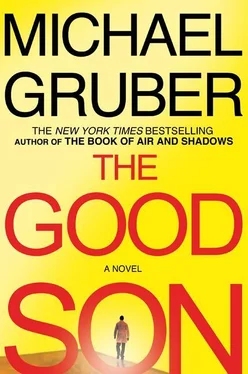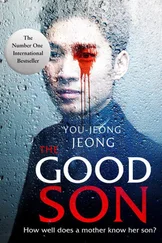He said, “Well, we have laid the bait, as you know. The calls have been fabricated as we discussed.”
“Jafar went for it?”
“No, of course not. I wouldn’t dream of involving Jafar. He is a government man, and only family by marriage. No, Rukhsana sent her eldest to Kahuta and he borrowed his father’s cell phone and made the call to her.”
“This is Hassan?”
“Yes. He’s turning out to be quite the conspirator. A very credible imitation of his father’s voice.”
“Who’s in on it?” I asked.
“Just Rukhsana and her boys-and Nisar, of course. And us.” He gave a sigh and put his glasses back on and looked at me through them, his owl look. He said, “I will tell you, Theo, if a month ago you had told me I would be involved in such a conspiracy, breaking the laws of my own and my host nation, with the intent to bring about a military invasion of Pakistan-well, I would have called you a lunatic. And now I have done these things-me, Farid Bashir Laghari, full professor of law, LLD, by God.”
“Why are you doing it then, if it bothers you?”
“You ask me why? You, who wept like a child in my arms when you thought she was in danger, who has not wept in my presence since you were small enough to carry? Because your mother makes me insane and has since the moment I first laid eyes on her in Central Park. Who could have known I would have such a weakness? I was always a good boy, studious, obedient-my God, how obedient I was! Nisar was always the rascal and Seyd was the spoiled baby, and I was the model son, I assure you. And suddenly, in this foreign park I am in the midst of a ghazal, I am Háfiz, I am Mir,” and he recited in Urdu:
“From the instant of the heart’s creation,
the body has been tinder,
so fell this spark,
the mantle burst into flames,
now like the light of the full moon
the fire has spread all over me.”
I said in the same language, “Wracked with madness, the only sound the rattle of my chains,” which is a line from the same poem.
He smiled. “Yes, and I thought I could become sane again, by bringing her into my home. I had a fantasy, a fantasy that by some miracle she might become a good Muslim wife.”
“That was always a long shot.”
“Yes, but hope is a mighty drug. You know the line-the same poem, in fact-about ridding the terrified gazelle of wild despair? Those who tamed her had done a miracle. I thought I had done it. We had a son, you, and I thought she was settling in. I knew she didn’t love me as I loved her, but I imagined that as we grew older-”
He stopped and looked away from me. Maybe he was stunned by the memories. I was stunned myself; I’d never had a conversation like this with my father.
I said, “But she ran away.”
“Yes. Can you imagine what it was like for the son of B. B. Laghari to have his wife run off and travel across half of Asia with that faqir? And then to write about it? My mother absolutely commanded me to divorce her. As you know, divorce is very easy in Islam, you say a few words, and it is done, and there is no question that it is the father who gets the children, but I could not. I simply could not do it. It would have strangled my heart. And so I waited and thought evil, unworthy thoughts. I prayed she would get into trouble out there and I would get a frantic call at three in the morning, Oh, Farid, come save me with your law books and your money! But the call never came, and then she became famous out of my disgrace, and then she went away again, on the haj, and this time she did something that scandalized even my father. Traipsing around Central Asia disguised as a man was bad enough, but on the haj! She had endangered the position of the whole family, so my father sent her into exile. And finally came the bomb and the catastrophe and I broke down and you vanished and what did I do? As soon as I recovered I could think of nothing else but finding her.”
“In Zurich.”
“Yes. Isn’t it remarkable that we have never discussed these events, as father to son? I am ashamed of myself, but you know, Sonia draws a pall of secrecy behind her like a dark cloak.”
“Yeah. I’m not entirely sure how she managed to find me. She was always pretty vague.”
“Well, I can barely help you there. I was not a party to those doings; I was only the father, after all! But it happened very quickly. After I found her, I begged her to let me stay with her, I was pitiable, crying and all that, I said that I had lost everything; was she going to abandon me as well? And so on. Pitiable! My mother, you can imagine, was insane with fury. She cut me off entirely. I could not work in Switzerland, but Sonia still had some money left, so we were not absolutely destitute. We had a flat in the Kreuzstrasse, we took the trams in the morning, she to the Jung Institute, I to the Zentralbibliothek to do research for an article on international law I was trying to write, and we existed that way-I won’t exactly call it living-like the war refugees you see on television. I did all the shopping and the housework, me who had never made a bed in his life! I made her tea, I massaged her feet, I thought if I turned myself into a servant she would acknowledge me, she would see my suffering and turn toward me with love. It was all I could think of doing.”
“Did she? Turn to you with love?”
He was silent for a moment and then slowly nodded his head. “Yes, in her fashion, she did. It took some time, and I think that what she was doing, the therapy and all that, must have helped. I thought we might be able to repair things and start to live again. So some years passed. She completed her training and was certified as a Jungian analyst. I applied for jobs in the States, and the U.K., and so forth. I published a number of articles on international law that were well received and gave me a small reputation in this field. And then the American came to our flat. This was in 1987, late in the year. Or, at least, I assume he was an American; I only heard his voice in the foyer. So I am waiting there in our living room, and Sonia comes in with tears in her eyes, and says, Oh, Farid, he’s alive! Theo is alive! This man had apparently found you in Afghan i stan. Of course I was full of questions. Tears were in my eyes too. I wanted to rush out and question this man, whoever he was, but she stopped me; she said I must not tell anyone about this. It was a condition.”
“A condition?”
“Yes, the gentleman in question had told her he could arrange to have you taken from Afghan i stan provided the whole thing was kept completely dark.”
“And you went along with that?”
“It was not a question of going along. Before I could say two words, she had taken her coat and disappeared from the flat. The next time I heard from her it was two months later, and she was calling from Washington, and she had you with her. So I forgave her that as well, and we made a life for ourselves here in this city, although she cannot bear to be with me for more than a few months at a time.”
“But she stays married to you. That’s something to think about.” As I said that I was wondering, Who was the American in Zurich in 1987? It was something I planned to ask Sonia, if and when I got to see her again.
“Yes!” said Farid. “She does love me, in her way. When she’s here, when we travel, she gives me the fullness of her presence, and it’s only then that I feel truly alive. When she’s gone, when I’m here alone, being looked after by a housekeeper and eating my meals in restaurants, I say to myself, Farid, you are keeping a hawk; don’t expect her to lay eggs like a chicken.”
“You could get another wife. It’s one of the advantages of the true faith.”
My father shrugged and smiled a little sheepishly. “Yes, I could, but I am too modern for that. I’m almost as deracinated as you. Tell me, do I seem different to you, since this all started?”
Читать дальше












